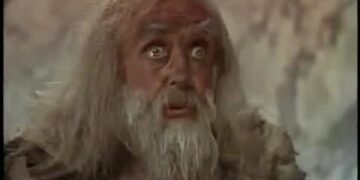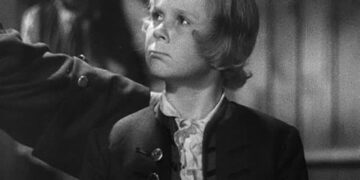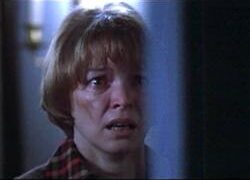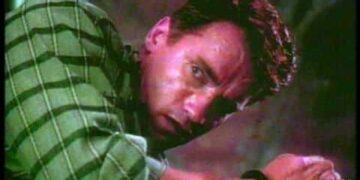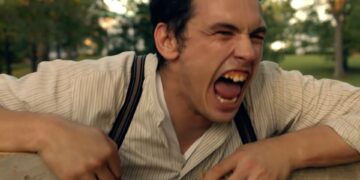The story of Lolita is a tale that has stirred controversy and intrigue since its inception. It is a story that challenges societal norms and explores the human psyche in ways that few other works of literature have done.
This article is an in-depth exploration of Lolita, a book that has been both praised and condemned, and a movie that has equally provoked and fascinated audiences.
The narrative of Lolita is a complex one, exploring themes of obsession, manipulation, and moral ambiguity, all seen through the eyes of a highly unreliable narrator.
It is a story that continues to provoke debate and discussion, prompting us to consider our own moral judgments and perceptions.
Lolita is not a comfortable read or watch. It forces us to confront uncomfortable truths about human desire, power, and morality.
Yet, it is also a masterful exploration of character, narrative, and literary technique, making it a must-read, and must-watch, for anyone interested in literature and film.
Brief book summary of Lolita
The story of Lolita, written by Vladimir Nabokov, is told from the perspective of Humbert Humbert, a European intellectual with a disturbing obsession for young girls, whom he refers to as ‘nymphets’.
The book is set in America, where Humbert moves and eventually marries a woman named Charlotte Haze, for the sole reason that he is infatuated with her 12-year-old daughter, Lolita.
The narrative unfolds as Humbert’s obsession with Lolita grows, leading him down a dark path of manipulation, deceit, and ultimately, tragedy.
The book is a complex exploration of Humbert’s mind, using his eloquent and deceptive narration to give us an insight into his perverse world.
It is important to note that Lolita is not a story that condones or romanticizes pedophilia. Rather, it is a stark and disturbing examination of a deeply flawed individual, told in a way that challenges our understanding of narrative and morality.
In-depth exploration of characters in Lolita
The characters in Lolita are complex and deeply flawed, each adding a unique dimension to the story. Humbert Humbert, the protagonist and narrator, is a highly intelligent man with a dark obsession. His eloquent narration and apparent self-awareness make him a fascinating, albeit deeply troubling, character.
Lolita, the object of Humbert’s obsession, is a young girl who is both victim and, at times, accomplice in Humbert’s schemes.
Her character is not as fleshed out as Humbert’s, largely because we only see her through his eyes. However, she is a crucial character, representing innocence corrupted and the devastating impact of Humbert’s actions.
Other characters, such as Charlotte Haze, Lolita’s mother, and Clare Quilty, a playwright who becomes a rival for Lolita’s affections, add further complexity to the story. Each character, no matter how minor, plays a crucial role in the unfolding of the narrative and the exploration of its themes.
Detailed movie summary of Kubrick’s 1962 adaptation of Lolita
Stanley Kubrick’s 1962 adaptation of Lolita is a masterful interpretation of the book. While it does not delve as deeply into Humbert’s psyche as the book does, it effectively captures the essence of the story and the moral ambiguity at its heart.
The movie begins with a confrontation between Humbert and Quilty, before flashing back to tell the story of Humbert’s arrival in America, his marriage to Charlotte, and his obsession with Lolita. The film follows the narrative of the book closely, while also adding its own unique elements.
Kubrick’s Lolita is notable for its black humor and its brilliant performances, particularly by James Mason as Humbert and Peter Sellers as Quilty.
While it does shy away from some of the more controversial aspects of the book, it remains a powerful and provocative adaptation of Nabokov’s novel.
Parent guide: What you need to know about Lolita
As a parent, it’s important to know that Lolita is a challenging and adult-oriented story. It deals with mature themes such as sexual obsession, manipulation, and moral ambiguity. It is not a story suitable for young readers or viewers.
While the book and movie do not explicitly depict sexual acts, they do explore the mindset of a pedophile, which can be disturbing and unsettling. It’s important to approach the story with caution and to have open discussions about the themes and issues it raises.
Lolita is a story that can provoke valuable discussions about morality, power, and the nature of obsession. However, it’s crucial to approach these discussions with sensitivity and understanding, given the controversial nature of the story.
Lolita’s timeline: When the story takes place
The story of Lolita is set in the mid-20th century, from the late 1940s to the early 1960s. This setting is crucial to the story, as it reflects a time when societal norms and perceptions were very different from today.
Humbert’s actions, while always reprehensible, are even more shocking given the time period. The fact that he is able to manipulate and deceive those around him for so long speaks to the societal attitudes of the time.
The setting of Lolita also adds a layer of irony to the story. Humbert, the European intellectual, is both fascinated and repulsed by American culture, reflecting Nabokov’s own experiences as a Russian émigré living in America.
Exploring the film locations of Lolita
Lolita was filmed in various locations across the United States and England. The opening scenes were shot in the iconic Highclere Castle in England, which would later become famous as the setting for Downton Abbey.
Other locations include the University of Oregon, which served as the backdrop for Humbert’s teaching stint, and various small towns in Colorado, where Humbert and Lolita’s road trip takes place.
The choice of locations adds to the authenticity of the movie, reflecting the vastness and diversity of America. It also mirrors Humbert’s journey, both physical and emotional, as he travels across the country with Lolita.
Visiting the locations where Lolita was filmed can provide a unique perspective on the movie and the story. However, it’s important to remember the disturbing nature of the narrative, and to approach these locations with respect and sensitivity.
Who’s who in Lolita: Character analysis
Understanding the characters in Lolita is crucial to understanding the story. Humbert Humbert, the protagonist and narrator, is a complex and deeply flawed individual. He is a master manipulator, using his intelligence and charm to deceive those around him.
Lolita, the titular character, is a young girl caught in Humbert’s web of deceit. She is both victim and accomplice, her character reflecting the disturbing power dynamics at play.
Other characters, like Charlotte Haze and Clare Quilty, add further complexity to the story. Charlotte, Lolita’s mother, is oblivious to Humbert’s true nature, while Quilty, a playwright, becomes a rival for Lolita’s affections, further complicating the narrative.
Memorable quotes from Lolita
Lolita is filled with memorable quotes, reflecting both the eloquence of Nabokov’s writing and the disturbing nature of the story. Here are a few that stand out:
- “Lolita, light of my life, fire of my loins. My sin, my soul.” – Humbert Humbert’s opening lines, reflecting his obsession with Lolita.
- “You have no right to take advantage of my feelings. That’s monstrous of you.” – Lolita’s plea to Humbert, highlighting the power imbalance in their relationship.
- “How could I have been so blind? How could I have let this happen?” – Charlotte’s realization of Humbert’s true nature, a poignant moment of self-awareness.
Each quote adds a layer of depth to the characters and the story, making them unforgettable parts of the narrative.
The soundtrack by Nelson Riddle: A musical perspective
The soundtrack for Kubrick’s Lolita, composed by Nelson Riddle, is a crucial element of the movie. It adds a layer of depth to the narrative, reflecting the mood and tone of the story.
The music is a mix of classical and contemporary styles, mirroring the clash of cultures and values in the story. The main theme, “Lolita Ya Ya”, is a haunting melody that perfectly captures the essence of Lolita’s character.
Other pieces, such as “Love Theme from Lolita” and “Quilty’s Caper”, reflect the various moods and tones of the movie, from the romantic to the suspenseful. The soundtrack is a testament to Riddle’s brilliance as a composer, and a crucial part of the Lolita experience.
Decoding curiosities in Lolita
Lolita is a story filled with curiosities and complexities, reflecting the intricate mind of its author. One of the most intriguing aspects of the story is the unreliable nature of the narrator, Humbert.
His eloquent and self-aware narration is at odds with his actions, creating a sense of unease and ambiguity.
Another curiosity is the use of humor in the story. Despite its disturbing themes, Lolita is filled with dark humor and irony, adding a layer of complexity to the narrative.
The use of symbolism and metaphor in the story is also noteworthy. From the butterfly motif, representing Lolita’s lost innocence, to the recurring theme of the journey, reflecting Humbert’s descent into obsession, Lolita is a story that invites analysis and interpretation.
Tips for Lolita cosplay: Dress like your favorite characters
Cosplaying as characters from Lolita can be a unique way to engage with the story. However, it’s important to approach this with sensitivity, given the controversial nature of the characters.
For Humbert, a 1950s suit, glasses, and a scholarly air are essential. For Lolita, the iconic heart-shaped sunglasses, sundresses, and girlish accessories capture her youthful innocence.
Remember, cosplaying should be a fun and respectful way to pay homage to the characters. It’s crucial to avoid sexualizing Lolita’s character or endorsing Humbert’s actions.
Vladimir Nabokov: A brief bio and exploration of his works
Vladimir Nabokov was a Russian-American author, known for his intricate narratives and masterful use of language. Born in Russia in 1899, Nabokov was a multilingual prodigy, writing both in Russian and English.
Aside from Lolita, Nabokov’s other notable works include “Pnin”, “Pale Fire”, and “Ada”. Each of these works reflects Nabokov’s unique style and his fascination with language, narrative, and the human psyche.
Despite the controversy surrounding Lolita, Nabokov is celebrated as one of the greatest writers of the 20th century. His works continue to captivate readers, offering intricate narratives that challenge and fascinate.
Understanding the ending of Lolita
The ending of Lolita is as complex and ambiguous as the rest of the story. Humbert, after discovering Lolita’s relationship with Quilty, kills him in a fit of rage. However, this act of violence does not bring him peace or redemption.
Lolita, now a married woman expecting a child, rejects Humbert’s advances, leaving him in a state of despair and regret. Humbert dies in prison, leaving behind his manuscript as a confession of his crimes.
The ending of Lolita is a stark reminder of the consequences of Humbert’s actions. It is a poignant and tragic conclusion, leaving us with more questions than answers.
Lolita’s legacy: Remake, sequel, spin-off
Despite its controversy, Lolita has left a lasting legacy in the world of literature and film. The book has been adapted into two films, a musical, and several stage plays, reflecting its enduring appeal.
In 1997, a remake of the movie was released, directed by Adrian Lyne and starring Jeremy Irons and Dominique Swain. This version is more explicit and faithful to the book, making it a controversial yet compelling adaptation.
There have also been several spin-offs and reinterpretations of the story, including “Lo’s Diary”, a novel that retells the story from Lolita’s perspective. Despite the controversy surrounding these adaptations, they reflect the enduring fascination with Lolita and its themes.
Other notable works by Stanley Kubrick
Stanley Kubrick, the director of the 1962 adaptation of Lolita, is one of the most celebrated directors in film history. His other notable works include “2001: A Space Odyssey”, “The Shining”, “A Clockwork Orange”, and “Full Metal Jacket”.
Each of these films reflects Kubrick’s unique style and vision, from his innovative use of music and sound to his meticulous attention to detail. Like Lolita, these films challenge and provoke, making Kubrick a seminal figure in the world of film.
Similar media to Lolita: What else will you like?
If you’re fascinated by Lolita, there are several other books and movies that you might enjoy. Books like “The Catcher in the Rye” by J.D. Salinger and “Atonement” by Ian McEwan explore similar themes of innocence lost and the consequences of desire.
In terms of movies, films like “American Beauty” and “The Reader” also delve into controversial relationships and moral ambiguity. These works, like Lolita, challenge societal norms and provoke thought and discussion.
Exploring other works by Vladimir Nabokov
Aside from Lolita, Vladimir Nabokov has written several other notable works that are worth exploring. “Pnin”, for example, is a tragicomic novel about a Russian professor living in America, reflecting Nabokov’s own experiences as an émigré.
“Pale Fire”, another of Nabokov’s masterpieces, is a complex and intricate novel that challenges traditional narrative structures. Each of these works reflects Nabokov’s unique style and his ability to create intricate narratives that captivate and challenge readers.
Book club discussion: questions to ponder on Lolita
Discussing Lolita in a book club can provoke valuable discussions about morality, power, and the nature of obsession. Here are some questions to consider:
- How does Humbert’s eloquent narration affect your perception of him as a character?
- How does Nabokov use humor and irony in the story?
- How does the setting of the story influence the narrative?
- How do you interpret the ending of Lolita?
Remember, discussing Lolita requires sensitivity and understanding, given the controversial nature of the story.
Lolita in video games: A unique exploration
While Lolita has not been directly adapted into a video game, its themes and narrative have influenced several games. Games like “Bioshock Infinite” and “The Last of Us” explore similar themes of obsession, manipulation, and moral ambiguity, reflecting the enduring impact of Lolita’s story.
Exploring these games can provide a unique perspective on the themes of Lolita, offering a new way to engage with the story.
Travel guide: Visiting the real-life locations of Lolita
Visiting the real-life locations of Lolita can provide a unique perspective on the story. Places like Highclere Castle, the University of Oregon, and various locations in Colorado can give you a deeper insight into the setting of the story.
However, it’s important to approach these locations with respect and sensitivity, given the disturbing nature of the narrative. Remember, these locations are not just tourist destinations, but also settings for a story that explores dark and controversial themes.
Conclusion: The lasting impact of Lolita
Lolita is a story that continues to provoke and fascinate, more than half a century after its publication. Its exploration of obsession, manipulation, and moral ambiguity challenges us to question our own perceptions and judgments.
Despite its controversy, Lolita’s legacy continues to endure, reflected in its numerous adaptations and reinterpretations. It is a testament to the power of literature and film, and their ability to provoke thought and discussion.
Whether you’re reading the book, watching the movie, or exploring the real-life locations, Lolita is a story that will leave a lasting impact. It is a story that challenges and captivates, making it a must-read, and must-watch, for anyone interested in literature and film.


